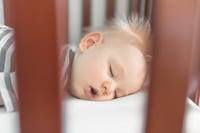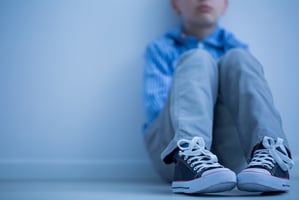Sleep Difficulties in Infants Linked to Later Development of Autism
 |
“The hippocampus is critical for learning and memory, and changes in the size of the hippocampus have been associated with poor sleep in adults and older children,” stated lead author Kate MacDuffie, Ph.D., of the University of Washington Autism Center in a press release. “However, this is the first study we are aware of to find an association in infants as young as 6 months of age.”
MacDuffie and colleagues assessed 432 infants (305 of whom were at-risk of developing ASD due to family history; for example, having an older sibling with the disorder) across three time points: 6, 12, and 24 months. MRI scans and behavioral assessments (including sleep) were conducted at each time point, while the 24-month visit also included a diagnostic assessment for ASD. Based on the 24-month results, the infants were divided into three groups: at-risk infants who developed ASD (n=71), at-risk infants who did not develop ASD (n=234), and low-risk infants who did not develop ASD (n=127).
They found that the infants who developed ASD were much more likely to have difficulty falling asleep (or falling back asleep) at 6 to 12 months of age compared with the other two groups. The children with ASD also had larger hippocampal volumes at 24 months compared with those of the other groups. There were no significant differences in other brain regions examined.
“Our findings provide initial evidence that sleep difficulties in the first year of life may precede ASD diagnosis and are associated with altered neurodevelopmental trajectories in high-risk siblings who go on to develop ASD,” MacDuffie and colleagues wrote. “We expect future work to reveal the implications of these results for understanding neurodevelopment in ASD and for developing early, targeted interventions for sleep difficulties in infants at high risk for ASD.”
(Image: iStock/kieferpix)
Now in Psychiatric News
 |
Speakers Share Insights on Inpatient Psychiatric Care During COVID-19 Pandemic
Don’t miss out! Learn when a new issue of Psychiatric News is available by signing up here.





